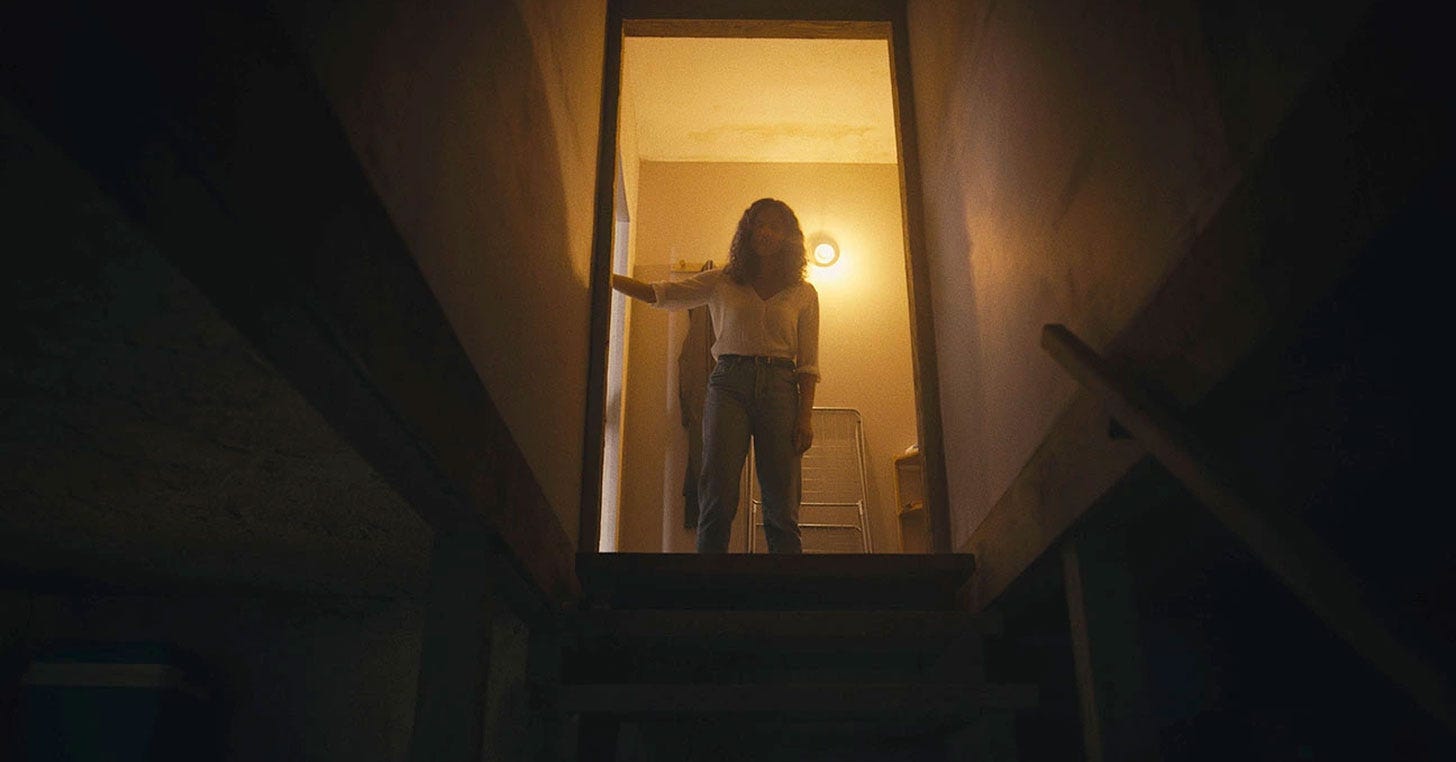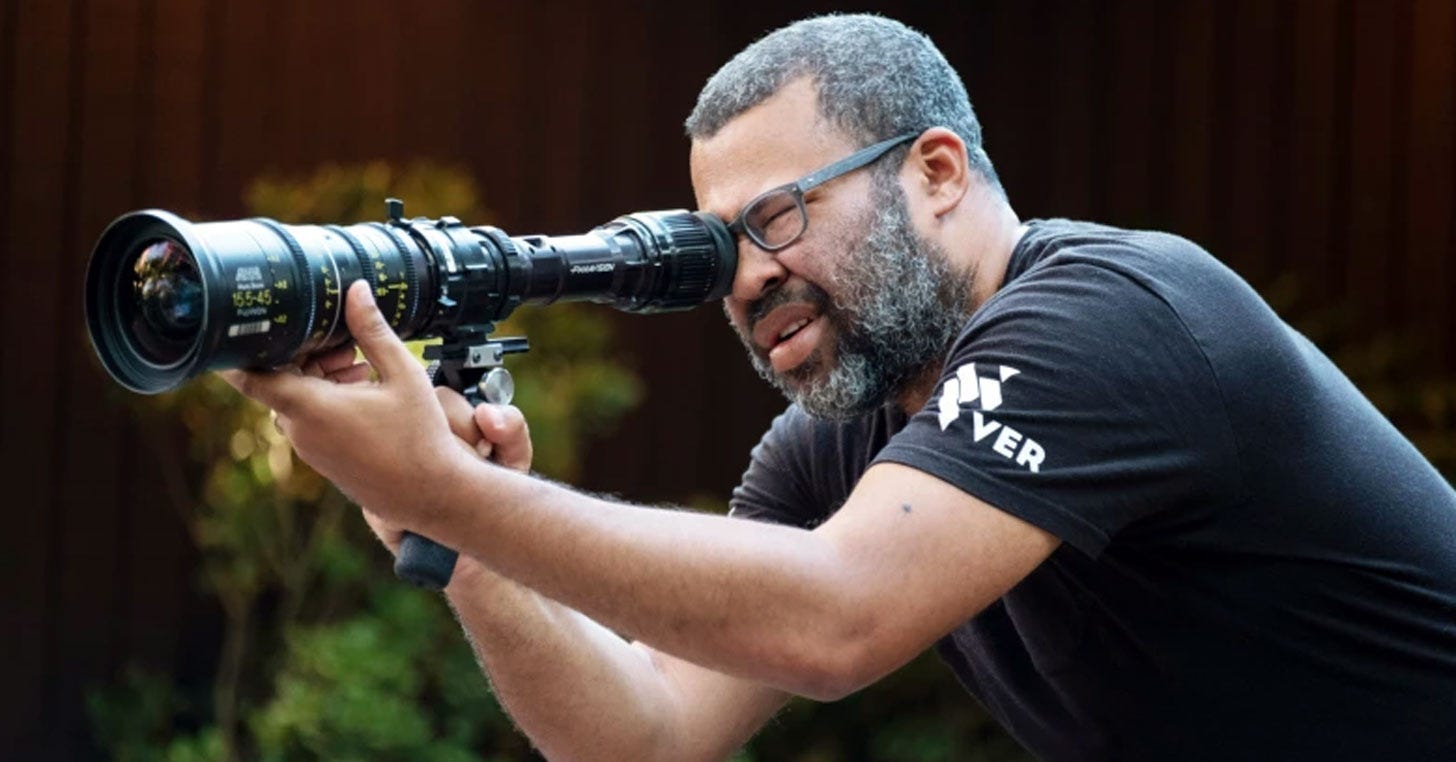What 'Barbarian' Can Teach Us About Staying Engaged With Our Art
Remember: YOU are your first audience.
I couldn’t wait to see Barbarian. The movie’s been generating a lot of interest in the horror community for a while, but since its release last month, even friends of mine who aren’t typically interested in genre fare have been giving it glowing reviews. They also emphasized that the less I knew going in, the better. So after successfully avoiding any and all spoilers, I finally had a chance to watch it last week.
Since I was a little late to the party, I was worried my enjoyment of it might collapse under the weight of inflated expectations. Thankfully, that was not the case. Barbarian was one of those rare occasions where something absolutely lived up to the hype.
It was somewhere around the 40 minute mark that I realized I no longer had any idea where it was going or what might happen next. And as someone who’s fairly well-versed in horror films, that was such an exciting feeling! But what was even more impressive was how writer/director Zach Cregger then managed to sustain that sensation for the entire remaining hour.
I spent the next few days looking up info on the making of the film and something that really resonated with me was how Cregger described his approach to writing the script. It contains a really valuable lesson that a lot of artists - not just writers - could probably benefit from.
Before I get to that, I have to warn you that THERE ARE GOING TO BE SPOILERS FOR BARBARIAN FROM THIS POINT ON. If you haven’t seen it yet and intend to, skip this and come back after you’ve watched it.
One of the most interesting things about the film is that Cregger didn’t initially set out to write a feature-length screenplay. He had an idea for a single scene that he wanted to explore as a writing exercise. Here’s an excerpt from an interview he did with Bad Feeling Magazine where he explains how it evolved from there:
“I didn’t set out to write a movie, I set out to write just a scene, and it was going to be just for me, I was never going to send it to anyone. And I just tried to turn my mind off and follow my fingers and my subconscious, and if I could surprise myself then I was having fun.
So, all of these twists and turns really just came from me being interested in surprising myself. I was my own audience member and so if I didn’t know where it was going, there’s no way the audience would know where it was going. So, that was kind of my north star for the writing of this.”
Cregger elaborated on this during an appearance on The Evolution of Horror podcast where he specifically talked about the moment Tess discovers the hidden door in the basement. He didn’t know what was behind it yet. He was just keeping himself interested and entertained. And then when she realizes there’s a second hidden door? As he was writing those words, he was thinking: “Oh shit! There’s another door?” That was a big reveal for him as well!
It sounds like Cregger is what they call a “pantser” - a writer who starts without too much of a plan and is just sort of flying by the seat of their pants. As opposed to a “plotter” who outlines everything first.
I lean more towards the latter, but I like to incorporate aspects of the pantser approach. Even though I usually start with an end destination in mind and a road map for how to get there, I give myself the freedom to explore alternate routes if more interesting ideas present themselves (and they always, always do).
But listen, I don’t want to get too in the weeds about the pros & cons of each method because what Cregger is tapping into doesn’t just apply to writing.
The big takeaway here is the concept of you being the first audience for whatever you’re creating. Cregger knew that if he was surprised and excited by where Barbarian was going, then the audience almost certainly would be too. But the opposite is also true — if your choices feel obligatory as you’re making them, so will the finished product.
In fact, Cregger faced that exact problem at the end of Barbarian’s first act. In that same Evolution of Horror episode, he says that once Tess was down in the tunnels, he realized that was the point where he probably had to reveal that Keith had deceived her and was actually a killer. But that just felt so uninspired. He was so bored by that choice that he actually considered abandoning the entire thing.
And then a naked old lady ran out of the darkness and bashed Keith’s head against the wall until there was nothing left.
Who was she? Where did she come from? What was she doing down there? Cregger didn’t know yet, but he was dying to find out. And just like that, his apathy was replaced with curiosity. Rather than settle for a humdrum solution, he found a way to reinvigorate his interest.
Now look, there’s a normal ebb and flow to the creative process. There are always going to be days where you’re just not feeling it. But if you’re consistently struggling to engage with a project, this might be a really useful way to shake something loose. You certainly don’t have to make as dramatic a left turn as Barbarian does, but you can still ask yourself: what would make me lean in here instead of back away?
Jordan Peele has similar advice for dealing with writers block. But again, this doesn’t just apply to writing. Replace “writers block” with “creative block” and the sentiment holds true. He says:
“That’s my advice with dealing with writers block. Follow the fun. If you aren’t having fun, you are doing it wrong.”
After I read this quote a few years ago, I wrote “Find The Fun” on a post-it note and stuck it to my laptop whenever I was working on a script. Lately, I’ve been doing the same thing for a lot of the post-production work on our web series. If I hit a wall, I look over at it and immediately have a new way of thinking about whatever problem I’m currently dealing with.
Painting. Songwriting. Photography. Whatever medium you’re working in, you are your first audience. Find the fun.
Take care, friends. Talk to you soon.
P.S. - Thank you to everyone who commented on my last post or sent in their responses to the questions I asked. The feedback was incredibly helpful and I can’t wait to start digging deeper into what I learned.









I really struggle with that spontaneity Cregger practiced. A judge in a painting competition told me once that my paintings lack emotion because they're too planned. I think about that a lot and really try (and fail) to set out without a blueprint. It's scary to "open the hidden door in the basement" and not know where you're going.
I often find that as the first audience to my work, I am also my harshest critic. There was a quote someone passed along at one point and I’ve forgotten the exact words, but it basically boiled down to critiquing your work as bad while you’re creating it is like eating the ingredients of a cupcake before you’ve baked it and calling it a bad cupcake (something like that). Anyway, I like this idea of finding the fun, so I definitely plan to keep asking myself that as I write.